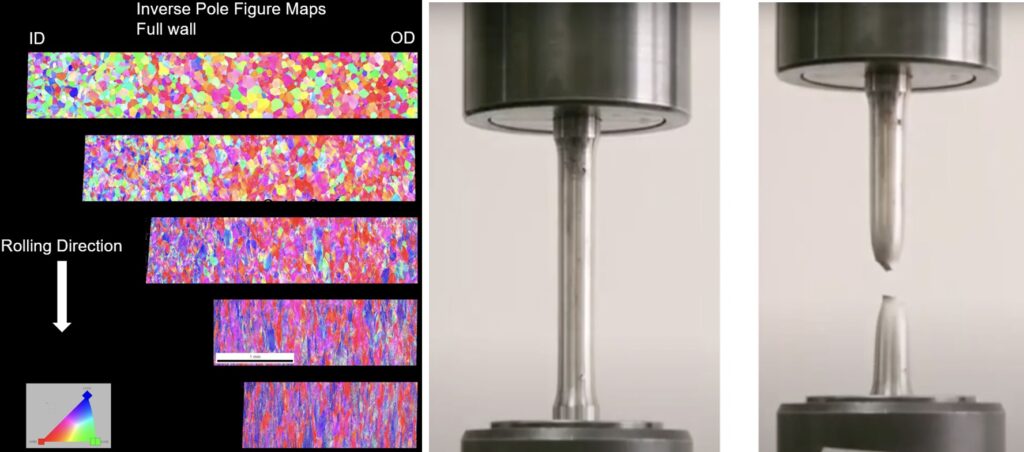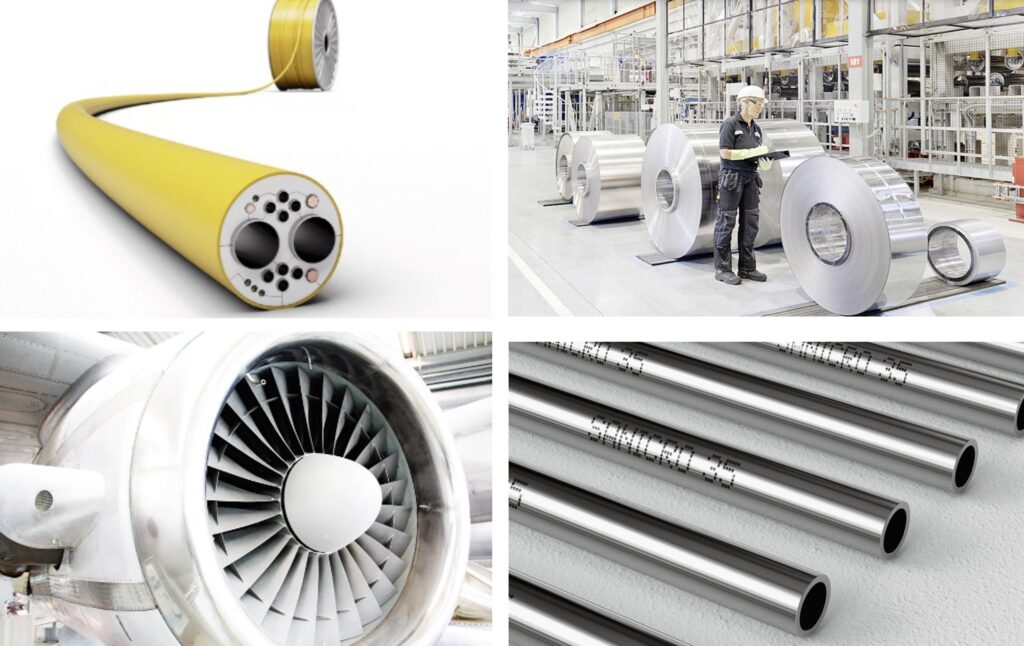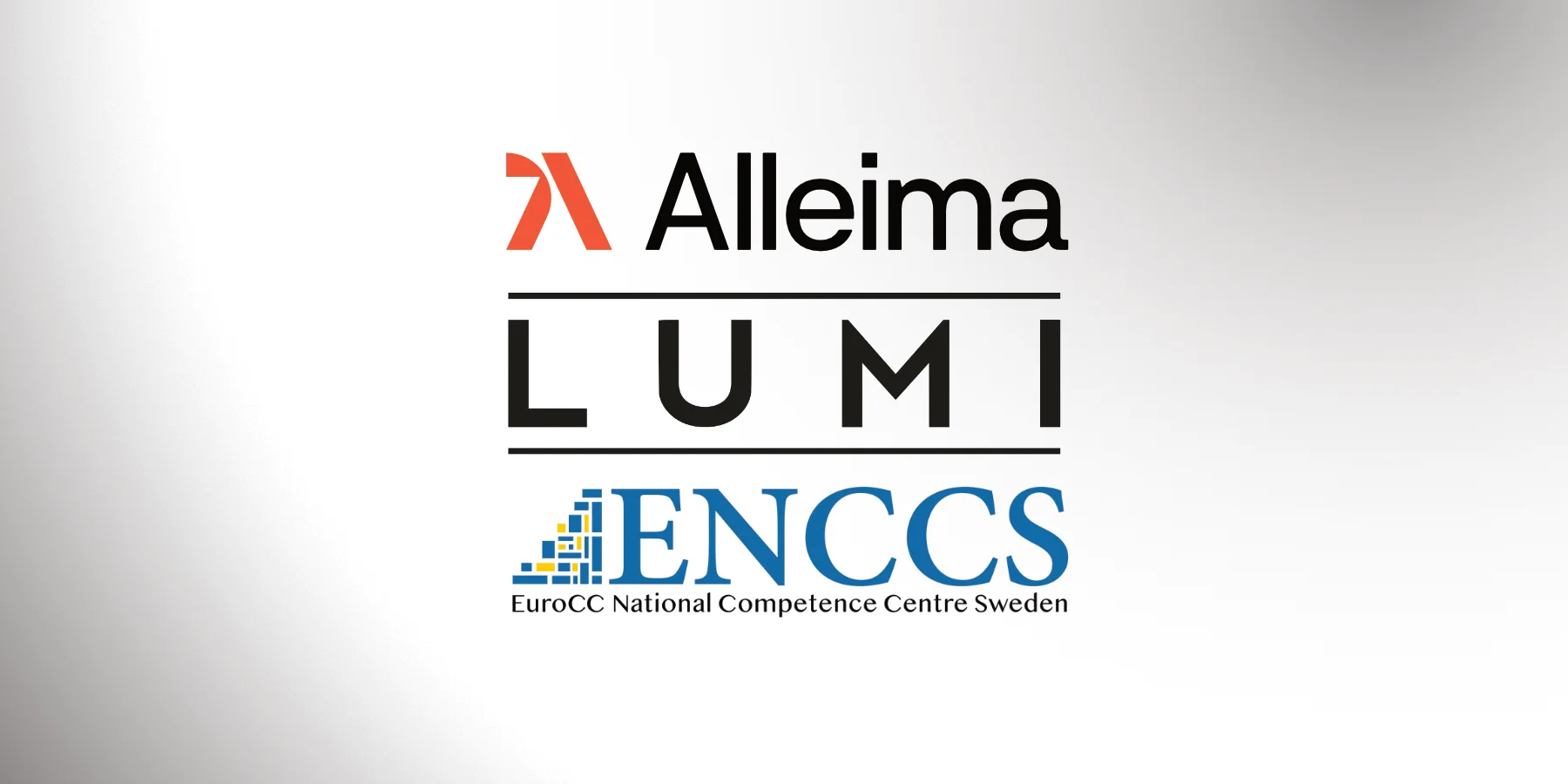Alleima AB accessed LUMI supercomputer for their material behaviour simulations using DAMASK. Alleima received important help from ENCCS material science expert Wei Li.
Organisations involved
Alleima AB, formerly known as Sandvik Materials Technology, is a leading manufacturer specializing in advanced stainless steels, powder-based alloys, and special alloys. The company provides high-performance materials and solutions for a number of industries. Those include aerospace, automotive, chemical processing, oil and gas, and medical technology. Alleima focuses on innovation and sustainability, aiming to enhance performance and productivity for its customers through its materials technology expertise.

Technical/scientific challenge
Achieving precise material properties involves extensive mechanical testing to estimate peak forces in specific working processes and to determine the mechanical properties of the final product. However, this process is hindered by lengthy lead times and high costs. Currently, predicting low-level deformation mechanisms and strain hardening requires laborious characterization work, contributing to extended timelines and increased expenses to attain the desired material properties.
The bottleneck in material characterization significantly impacts the precision of our materials design, relying heavily on the availability of cutting-edge materials characterization techniques. While nondestructive characterization is the preferred method, it remains a challenge in many cases, hindering progress in material property determination.

To expedite the development of new materials, both the knowledge and methodology of material design using computer-aided tools are crucial. Leveraging recent advancements in crystal plasticity modeling provides a robust and efficient approach to material development. It offers a promising solution to overcome the challenges posed by traditional testing methods. This project employs Damask software on LUMI supercomputer for crystal plasticity modeling.
Business impact
The scientific case of the project revolves around utilizing DAMASK for crystal plasticity calculations, with input from stacking fault energy (SFE) calculations. The primary motivation is to overcome challenges associated with estimating SFE in materials with values close to or below 0, where conventional methods yield substantial errors. By leveraging DAMASK, the project aims to simulate tensile test curves to predict forces in designated working processes accurately. This integrated approach improves the reliability of material behavior predictions in practical applications.

Benefits
- Reducing lengthy lead times and high costs associated with extensive mechanical testing and labor-intensive characterization work.
- Utilizing advanced modeling techniques to improve the prediction of deformation mechanisms and strain hardening, enhancing the precision of materials design and ensuring desired material properties are achieved more efficiently.
- Understanding the mechanical behavior of materials through advanced modeling enables the optimization of our production routes, resulting in decreased costs and reduced waste of energy, materials, and resources.

Access European supercomputers for your projects
Any company based in Europe can gain access to a EuroHPC JU supercomputer. Learn more here.








